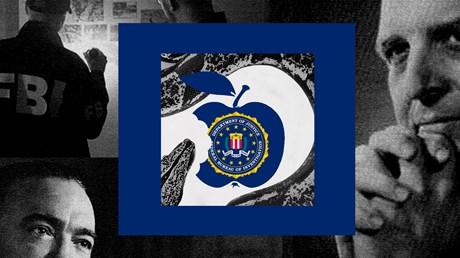What we can learn from Christianity Today's troubling history of working with J. Edgar Hoover.

Billy Graham tried.
He preached in the White House the first Sunday after Richard Nixon was inaugurated in 1969, and he tried to preach clearly enough that the new president would hear his message. Graham engaged directly with Nixon’s inaugural address and said Nixon was wrong to rely so much on himself, his own ingenuity, his own goodness. Nixon was wrong when he said, “We need only look within ourselves” to solve the country’s most pressing problems. The president and the American people, Graham preached, should humble themselves, turn, and put their trust in God.
Or at least that is what he meant to say. His critique was so subtle that no one in the East Room of the White House noticed. After the service, they all drank orange juice and coffee and commented how nice it was, winning an election, taking control of the White House, and having a worship service under the famous portraits of George and Martha Washington. They completely missed the call to humility, because Graham couldn’t quite bring himself to make it.
What the founder of CT was really saying is only clear if you look at what he quoted from the inaugural address and then look at what Nixon said next and compare that to what Graham said next and see Graham is directly countering the president. No one did that though, so one noticed. Not even the notoriously sensitive Nixon.
The new president just felt affirmed. Graham’s message was missed. And he kept getting invited to the White House, where he had access to power, as long as he continued to make morally devastating compromises.
The temptation to appease people in power is a strong one. The temptation to compromise for the sake of access isn’t new. For white evangelicals, ...
from Christianity Today Magazine
Umn ministry


.gif)

.gif)
.gif)
